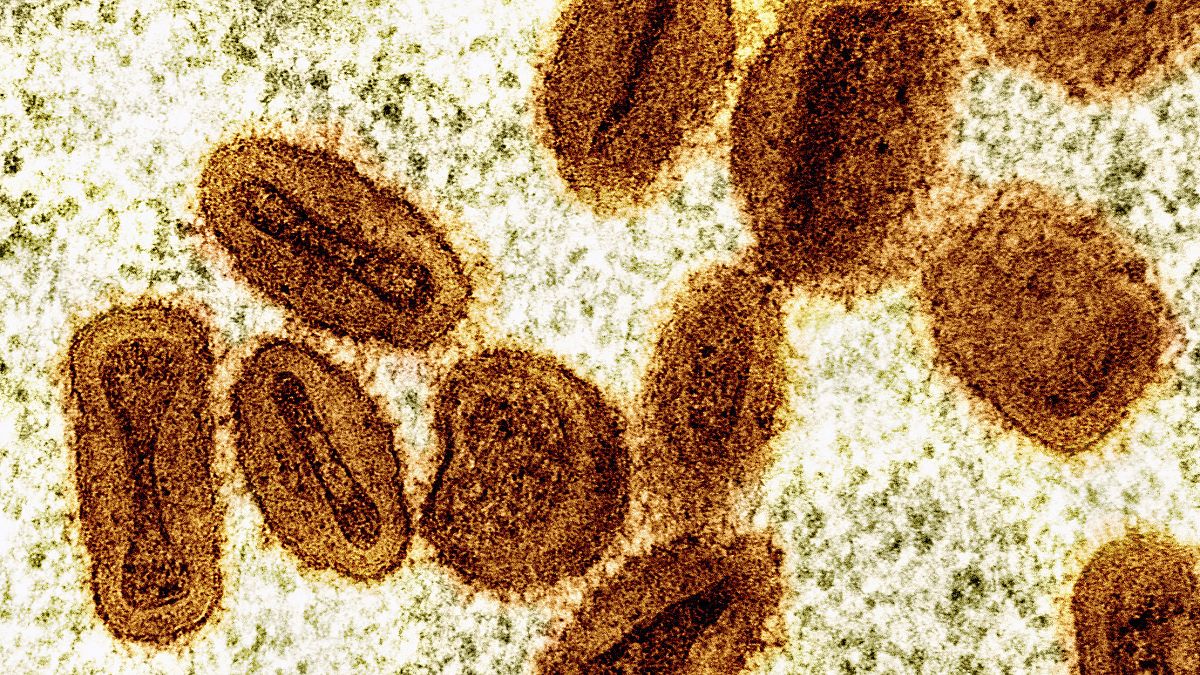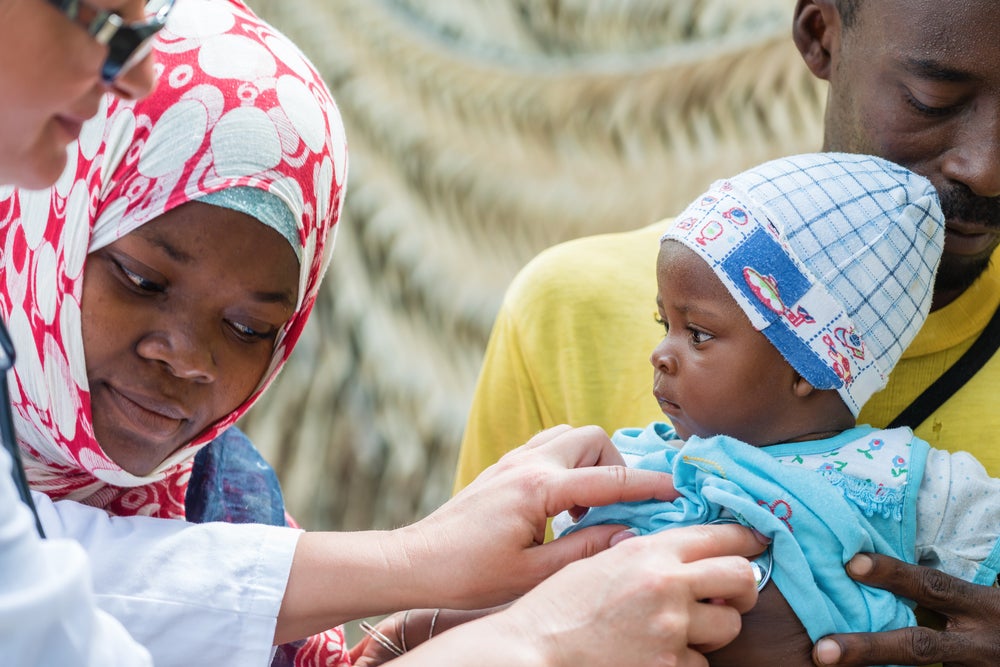According to the latest Mpox news reports, In November 2024, the global case count for mpox has surpassed 106,000 confirmed cases reported across 123 countries.
As of November 2024, mpox cases have surged in the Democratic Republic of the Congo and Burundi. A total of approximately 43,180 confirmed and suspected cases have been reported with 39,501 of these in the DRC alone.
The outbreak has disproportionately affected children with child cases more than doubling since a public health emergency was declared in mid-August 2024.
A new strain known as Clade 1b has emerged, which is spreading rapidly and has been linked to increased fatalities among children.
Reports show that children are nearly four times more likely to die from this strain compared to adults. This strain has also been detected in neighboring countries and has led to local transmission outside Africa for the first time particularly in the UK.
According to the latest Mpox news reports, the World Health Organization has allocated 899,000 doses of the MVA-BN vaccine to nine African countries hardest hit by the surge. These countries include the DRC, Kenya and Uganda.
On November 17, 2024, US health officials confirmed the first case of this new form of mpox in a traveler returning from eastern Africa. The individual is recovering with low public risk reported.
Researchers have developed an optical biosensor capable of rapidly detecting mpox at the point of care, which could improve diagnosis and response times during outbreaks. This technology was published on November 14, 2024.
On November 22, 2024, the World Health Organization will convene an emergency committee to assess if mpox continues to be classified as a public health emergency of international concern. This decision follows a rise in cases particularly in the Democratic Republic of the Congo and neighboring countries.
As of early November 2024, the DRC and Burundi reported over 43,180 confirmed and suspected mpox cases with children disproportionately affected. Cases among children in the DRC surged by over 130% since the declaration of the public health emergency in August.
On November 17, 2024, the United States confirmed its first case of the new Clade 1 mpox variant in California. The patient had traveled from Eastern Africa, where this variant is prevalent. Health officials are monitoring the situation closely.
The WHO had previously declared mpox a global health emergency on August 14, 2024 due to its rapid spread in Africa and concerns over a new variant’s higher lethality and transmission rates.
India has confirmed its first case of the highly transmissible mpox strain linked to a global health alert by the WHO. The patient, a 38-year-old man from Kerala had returned from Dubai.
The World Health Organization declared mpox a public health emergency in Africa in August 2023 and the new variant has since spread to several countries including Sweden and Thailand.
A 26-year-old man from Haryana tested positive for the West African Clade 2 strain of mpox after returning from abroad. He was admitted to a hospital in Delhi, the second confirmed case in India.
The WHO has raised cautions about the spread of mpox particularly the Clade 1b variant first identified in the Democratic Republic of Congo.
According to the latest Mpox news reports, the US has pledged to provide 1 million doses of mpox vaccine and over $500 million in aid to support affected regions in Africa.
The World Health Organization has approved the first diagnostic test for mpox known as the Alinity m MPXV assay. This test utilizes a real-time PCR method to detect the virus from swabs taken from skin lesions, reducing the wait time for diagnosis compared to previous methods that required days for laboratory analysis.
The test provides instant confirmation of suspected mpox cases, enabling quicker medical responses and treatment.
This approval is crucial for countries experiencing outbreaks in Africa, where only about 37% of suspected cases have been tested this year. The WHO addressed that over 30,000 suspected cases were reported across the continent in 2024.
Yukiko Nakatani, WHO’s Assistant Director-General for Access to Medicines and Health Products addressed that increasing access to quality-assured medical products is important for controlling the spread of mpox.
The approval comes during a resurgence of mpox cases particularly in the Democratic Republic of the Congo, which has seen high mortality rates associated with the virus.
Global Mpox Case Count as of November 2024, As of Mpox News Reports
| Country | Confirmed Cases |
|---|---|
| Democratic Republic of the Congo | 18,000 |
| Burundi | 1,700 |
| Uganda | 359 |
| Other Countries | 85,941 |
Mpox Case Distribution, As of Mpox News Reports
Age Distribution
| Age Group | Percentage of Cases | Statistics |
|---|---|---|
| Under 5 Years | 28.9% | Highest risk group for severe outcomes |
| Ages 11-20 | 42.6% | Huge case representation |
| Ages 21-30 | 38.2% | Lower severity compared to younger ages |
| Ages 31-40 | Major adult demographic | Over 10.6k cases among men |
| Children Under 15 Years | 69% | 86% of deaths occurring in this age group |
Gender Distribution
| Gender | Percentage of Cases | Statistics |
|---|---|---|
| Male | 55.6% | Higher incidence in adult males, especially ages 31-40 |
| Female | 44.4% | Lower incidence compared to males |
At least 53 deaths have been reported among confirmed mpox cases across various countries. The majority of deaths have occurred in the Democratic Republic of the Congo.
Other countries such as Uganda and Kenya have also reported fatalities linked to mpox primarily among individuals with pre-existing health conditions like HIV.
According to the latest Mpox news reports, the overall case fatality ratio for mpox in Africa has been at approximately 0.5%.
Vaccine Allocations and Distribution, As of Mpox News Reports
The Access and Allocation Mechanism for mpox has allocated 899,000 vaccine doses to nine African countries affected by the recent surge.
The countries receiving these doses include the Democratic Republic of the Congo, Central African Republic, Cote d’Ivoire, Kenya, Liberia, Nigeria, Rwanda, South Africa and Uganda. 85% of these doses will be directed to the DRC.
By the end of 2024, over 5.85 million doses are expected to be available through various contributions from nations and organizations. This includes donations from the European Union, United States and Canada, as well as vaccines procured through UNICEF.
On November 14, an additional 122,300 vaccine doses were delivered to support the response in the DRC. EU to donate a total of 580,000 vaccines to African countries.
Approximately 50,000 individuals had been vaccinated in both DRC and Rwanda. Additionally, there are concerns about the availability of vaccines suitable for children as the LC16 vaccine is still awaited for this demographic.
The first phase of mpox vaccination in several countries has concluded with over 51,000 individuals vaccinated in various regions.
According to the latest Mpox news reports, a total of 899,000 doses of the MVA-BN vaccine are being allocated to countries in Africa including the Central African Republic, Democratic Republic of the Congo and Nigeria, among others. This initiative is supported by donations from Canada, Gavi and several EU countries.
By the end of 2024, it is expected that over 5.85 million doses of mpox vaccines will be available. This includes contributions from multiple nations and organizations, 1.85 million doses from the EU and North America alongside additional supplies from UNICEF and Japan.
The primary vaccine used is JYNNEOS, which has been licensed by the FDA for preventing mpox. The standard regimen consists of two doses administered four weeks apart.
There is also an alternative intradermal administration method that may be used under Emergency Use Authorization.
The MVA-BN vaccine has shown an estimated effectiveness of 76% with a single dose and 82% with a two-dose regimen when administered before exposure to the virus. Post-exposure vaccination is less effective than pre-exposure.

Mpox in Companion Animals, As of Mpox News Reports
A study conducted by the CDC from July 2022 to March 2023 found that while mpox virus DNA was detected in swab samples from some companion animals living with infected humans, there was no evidence of actual infection in these animals.
Specifically, 12% of animal samples tested positive for MPXV DNA, but viable virus or antibodies were not found.
Cases have shown that dogs and cats can test positive for MPXV DNA, but follow-up investigations suggested these findings were likely due to environmental contamination rather than active infections.
For instance, a dog in France and another in Brazil were reported to have lesions associated with MPXV but were not confirmed as infected.
Research shows that various African rodents particularly species like Cricetomys and Funisciurus may serve as reservoirs for the mpox virus.
The primary mode of transmission to humans appears to be through contact with infected animals, either via bites or handling infected animal products. This is relevant in rural areas where hunting bushmeat is common.
Top Sources Related to Latest Mpox News, Vaccination Updates and More – November 2024 (For R&D)
American Medical Association:
Nature:
Pharmaceutical Technology:
Also Read: Delhi Pollution News: Delhi Air Quality Reaches Severe Category – November 2024



















